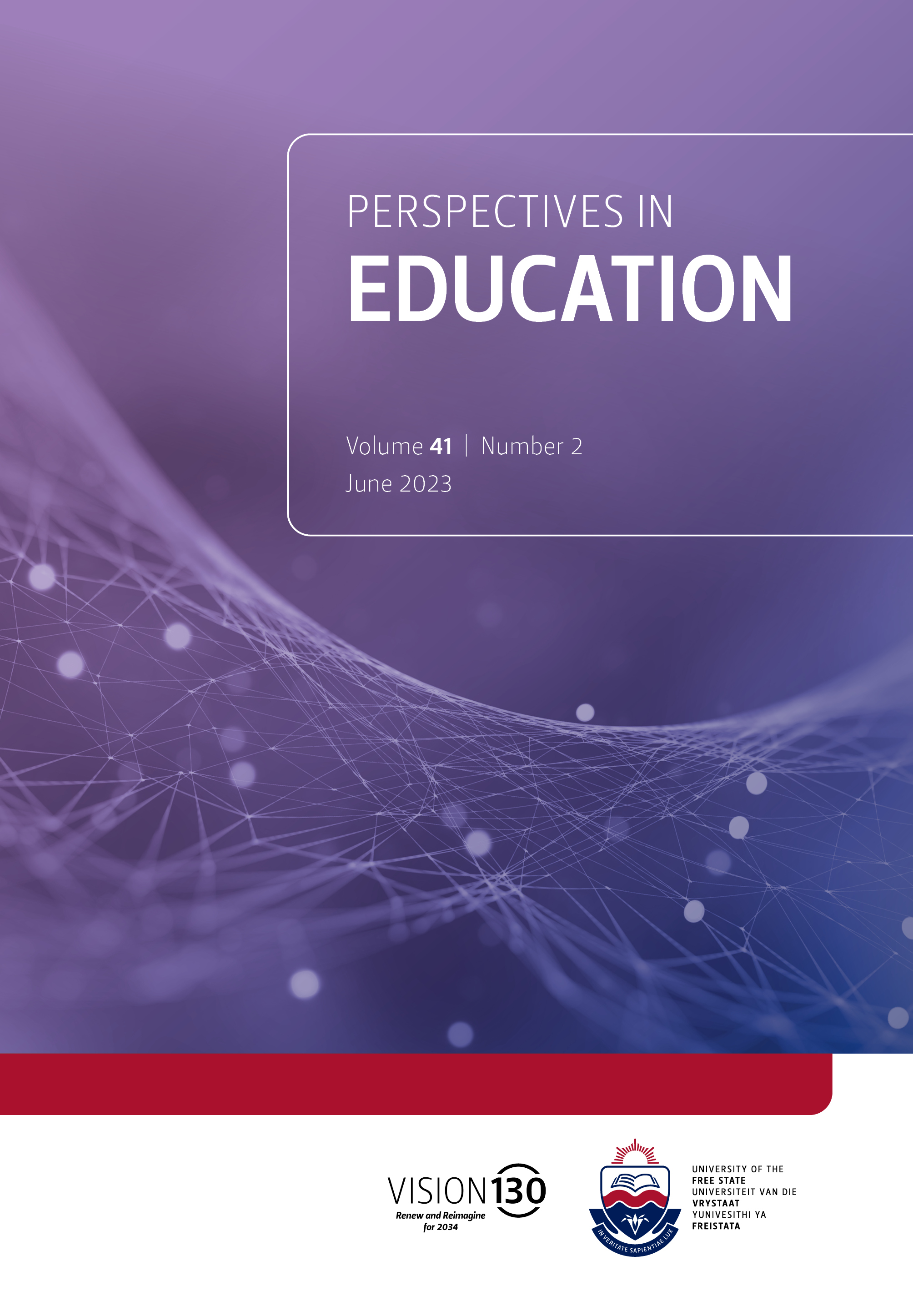Obstructions to the integration of ICT in English First Additional Language lessons: The case of Limpopo intermediate phase classrooms
DOI:
https://doi.org/10.38140/pie.v41i2.6823Keywords:
collaboration, contextual factors, EFALICT, integration, pedagogical experienceAbstract
English First Additional Language (EFAL) is one of the prescribed subjects in South Africa. However, it is a has proven to be difficult, especially the reading part of the it. On the other hand, the integration of Information Communication Technology (ICT) can mitigate the challenges and promote effective pedagogy in this subject.Unfortunately, there is evidence that the implementation of ICT is not easy to achieve in some South African schools. This scholarly piece, which is guided by the theory of connectivity, has its focus on those impediments that hinder the effective implementation of ICT in EFAL classrooms. This is because contextual factors must be faced head-on to achieve success in a school environment. The study was informed by interpretive practices, resulting in the use of participant observations and semi-structured interviews to collate the data. Thematic analysis of the data revealed the following: limited time for collaborative practices; lack of ICT expertise; issues of power; poor reading competence among the learners; limited pedagogical knowledge; workload; lack of resources; network issues; and safety issues. Despite all these conundrums, this paper proposes that intermediate phase EFAL teachers should still try to learn how ICT can assist the improvement of reading competence. For the integration of ICT to happen effectively, managers at all levels should also provide the necessary support to the teachers.
Downloads
##submission.downloads##
Published
How to Cite
Issue
Section
License
Copyright (c) 2023 Sekanse Ntsala, Pricilla Mamare Seabela

This work is licensed under a Creative Commons Attribution 4.0 International License.





